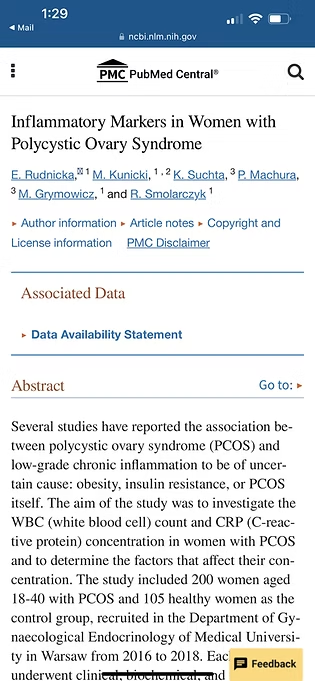Welcome to a straightforward guide designed for all the wonderful women out there navigating the challenges of Polycystic Ovarian Syndrome (PCOS). We’re diving into an often-overlooked aspect of managing this condition: the significance of C-reactive Protein (CRP) testing. It’s simpler than it sounds, promise!
What Exactly Is CRP and Why Should You Care?
First off, let’s break down what CRP stands for. Imagine CRP as a red flag your body waves around when it’s fighting off something harmful, like an infection or chronic inflammation. For women grappling with PCOS, this marker is like a secret code that can reveal hidden inflammation in your body.
What the Research Says
There’s this study we stumbled upon that shines a light on something pretty important. It talks about how women with PCOS often have higher levels of CRP. Think of CRP as a global marker for inflammation. This isn’t just any marker; it’s like the beacon showing how much inflammation is partying inside your body without an invite.
A Real-Life Transformation with PCOS
Now, let me paint you a picture with a story of transformation. We had this client, a brave woman battling PCOS. We checked her CRP levels before starting our special program tailored just for her. Picture this: a lab report with a big red arrow pointing to her CRP level at 4.87. Now, in a perfect world, that number should be less than one. Fast forward through our program designed with PCOS in mind, and her CRP level danced down to 1.09. That’s the power of targeted care.
Take Action and Transform Your Health
Step Out of the Shadows of PCOS
If you’re out there feeling stuck in the shadows cast by PCOS, and the usual routes haven’t lit the way, it’s time for a chat. Our journey together could be the beacon you’ve been searching for, guiding you towards a path less inflamed.
Join Our Community of Thrivers
Loved diving into the simplicity of CRP and its impact on PCOS with us? If this snippet of knowledge sparked something in you, don’t keep it to yourself. Like, comment, and share this insight to spread a little light. Together, let’s build a community where understanding meets action in the realm of PCOS management.
Frequently Asked Questions (FAQ)
CRP (C-reactive Protein) is a key marker of inflammation in the body, acting like a "red flag" for hidden inflammation. For women with PCOS, it's a crucial indicator because research shows they often have elevated CRP levels, revealing the underlying chronic inflammation that contributes to the condition.
The ideal CRP level should be less than 1.0 mg/L. The post highlights a case where a client's CRP started at a high 4.87 mg/L and, through a targeted program, was successfully reduced to a much healthier 1.09 mg/L.
Yes, significantly. Reducing CRP is a direct way to lower the systemic inflammation that exacerbates PCOS. The client's story demonstrates the "power of targeted care," where lowering her CRP level was a key part of her successful transformation and management of PCOS.








